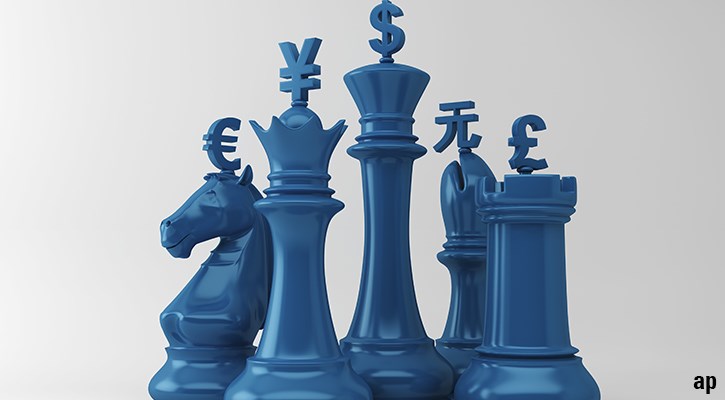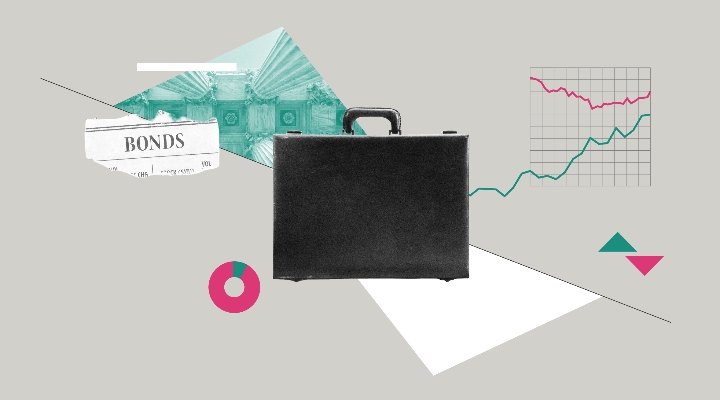Click here to read our views on the economic and market background.
Equities
The global economy appears to have subsided into a period of sub-par growth with little prospect of a return to above trend over the near term, unless the Chinese economy rebounds vigorously. EU turmoil, while reversed for now, could come to the fore again given the lack of detail in the recent ECB announcement. Equity risks remain high, but economic and financial trends are resulting in coordinated policy responses from governments and central banks which should gradually encourage investors to rebuild equity weights in portfolios. Tactically, we remain neutral on most regions but expect some near term EU, UK and Emerging Market outperformance. The recommended strategy for long-term investment in a low growth/low inflation world, where earnings growth will be at a premium, is to buy exposure to growth markets irrespective of sector, focusing on quality companies with healthy balance sheets and strong cash flow. Income will also be sought in a low interest rate world and higher yielding stocks with rising dividends are also preferred.
Bonds
The magnitude of the decline in main market government bond yields, while maybe justified for investors only caring about return of capital rather than return on capital, was driven by fear and financial repression rather than normal fundamental valuation. This has been the case for some time and yields look set to remain at lower levels but will trend upwards. Investment grade corporates offer far better value with spreads likely to continue to narrow. Even so, yields are at or close to all time lows and, with the probability of rising government yields, some capital loss could partially offset the pick-up in income. Investors should also consider riskier UK and US credits and Emerging Market debt.
UK Commercial Property
Signs that the UK commercial property bull market was stalling were evident a year ago but capital value growth remained supported by gains in Central London offices. This year all the main sectors have experienced a fall in values, even City offices, and the IPD index has recorded eight successive monthly declines with June showing further weakness. It is only UK property’s high 6.8% yield that has ensured positive total returns so far. This is unlikely to last, as with secondary property yields widening and lower levels of investor interest at a time when banks are increasingly keen to sell involuntarily held portfolios, capital values are generally expected to fall this year. Even with a yield some 5% above gilts, UK property no longer offers the prospect of higher returns than those available on cash. Indeed, futures prices predict just a 1% return through to March 2014.
Commodities
Recent weeks have witnessed considerable divergence in the performances of individual commodities. The agriculture sector has soared with grains surging (corn is up 57% in just five weeks) due to US drought conditions that many expect to continue through to October. The key factors of supply/demand conditions, investors and speculative positioning have differentiated oil and industrial metals, with the former seeing the return of speculative interest as supply tightened amid Iranian sanctions and OPEC production cuts. As expected, crude oil has recovered strongly from its June lows (+24%) and an upward trend appears in train. Metals by contrast remained becalmed by Chinese demand and high inventories. Better economic news from China in the second half of the year is expected to generate upside for supply constrained copper. Gold has trended sideways for some months but with an upward bias in recent weeks that may well continue.
Currencies
Currencies remain volatile and as difficult to predict as ever. It is the only part of asset forecasting where the range of predictions is so wide with very reputable commentators having radically different views. Following such a strong move the yen is now back to levels that caused the BOJ to intervene and reinstate QE, so long yen positions are taken at your peril. Likewise the dollar benefitted from significant safe haven buying but strength or weakness against the euro from here will depend principally on whether European policymakers can continue to re-build confidence following the ECB-induced rally. Some further near-term euro strength and dollar depreciation appear likely. Asian/Emerging Market/commodity currencies have cheapened significantly and, in general, these currencies remain the preferred long-term choice.




























